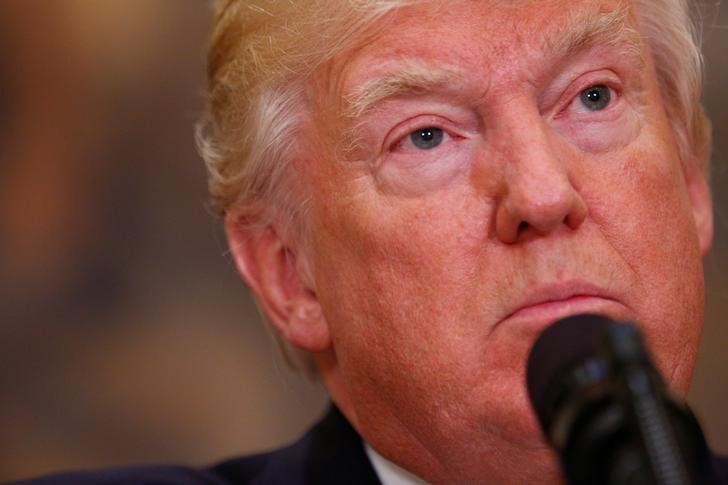By Nate Raymond
BOSTON (Reuters) - A proposed Massachusetts ballot initiative that would allow voters to require U.S. presidential candidates to release their tax returns cleared a key hurdle on Wednesday, as state lawmakers mulled a similar bill after President Donald Trump declined to release his returns.
The state's attorney general, Maura Healey, a Democrat, certified the initiative petition along with 20 others covering a variety of topics as having met constitutional requirements for ballot questions.
The proposed Massachusetts law would require candidates for U.S. president and vice president to submit to the state's secretary copies of their federal income tax returns for the last six years that could then be made public.
Certification of the petitions means backers can begin collecting the tens of thousands of signatures needed to get their questions onto the November 2018 ballot. Healey's office said her decision did not mean she supported the petitions.
The election-related initiative came after Trump, a Republican, last year became the first major presidential candidate since the 1970s to not voluntarily release at least some of his tax returns.
Healey's certification of the petition came as state lawmakers held a committee hearing and took testimony on a bill that would require U.S. presidential candidates to also disclose their tax returns in order to get onto the ballot.
Senator Michael Barrett, the bill's Democratic sponsor, in an interview said the bill had "a lot of grassroots interest," and was receiving support from March Forward Mass, which formed after the Women's March protest held in January a day after Trump was inaugurated.
William Galvin, the Democratic secretary of state, testified in support of the bill, saying the public disclosure of tax returns is needed in order for voters to know about a candidate's potential conflicts of interest.
"This bill is not about Donald Trump," he said. "It's because of Donald Trump."
Barrett acknowledged such a law could be subject to lawsuits. The U.S. Constitution sets out qualifications to become president, and critics could argue the state's law would unconstitutionally do the same.
But Galvin testified that he believed that a law requiring tax returns' disclosures could survive a legal challenge as states have a right to set conditions to get on their ballots.
Similar proposals are being considered in other states. Republican New Jersey Governor Chris Christie in May vetoed a bill that would have required the disclosure by presidential candidates of tax returns, calling it "politics at its worst."
